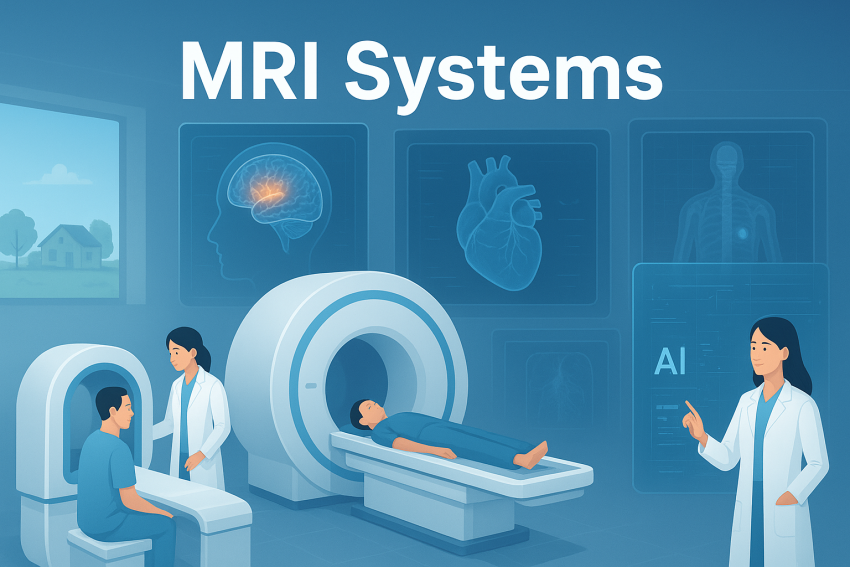Magnetic Resonance Imaging (MRI) has long been a cornerstone in medical diagnostics, offering unmatched insights into soft tissue structures without the risks of ionizing radiation. Traditionally, its applications have centered on neurology, musculoskeletal imaging, and cardiovascular diagnostics.
However, rapid technological advancements and evolving healthcare demands are expanding MRI’s horizons into new and high-impact territories.
- Functional MRI (fMRI) in Neuroscience and Beyond
Functional MRI, once confined to research labs, is increasingly being adopted in clinical practice. By tracking blood oxygen level–dependent (BOLD) signals, fMRI enables clinicians to map brain activity, aiding in surgical planning for epilepsy and tumor resections. Beyond healthcare, fMRI is making its way into cognitive science, psychology, and even market research, where it’s used to study decision-making and emotional responses.
- Cardiac MRI for Precision Cardiology
Advances in cardiac MRI techniques now allow detailed visualization of myocardial tissue, perfusion, and fibrosis without invasive procedures. This has proven critical for diagnosing cardiomyopathies, congenital heart disease, and early-stage heart failure.
- Whole-Body MRI for Oncology and Preventive Care
Whole-body MRI is emerging as a game-changer in cancer detection, staging, and therapy monitoring. The technique’s radiation-free nature makes it suitable for population-wide screening, particularly in high-risk groups for cancers such as multiple myeloma or metastatic melanoma.
- MRI in Orthopedic Regeneration and Sports Medicine
Advanced MRI protocols now allow visualization of cartilage composition, ligament microstructure, and early joint degeneration—long before symptoms appear. Sports teams and orthopedic centers are adopting these techniques to monitor athlete health and guide rehabilitation.
- Portable and Low-Field MRI in Rural and Emergency Care
Recent innovations have produced portable, low-field MRI systems that can be deployed in emergency rooms, intensive care units, and remote clinics. While image quality may not match high-field scanners, the accessibility and lower cost can significantly improve diagnostic reach.
- AI-Enhanced MRI for Faster and Smarter Imaging
Artificial intelligence is revolutionizing MRI workflows—reducing scan times, enhancing image reconstruction, and assisting in automated diagnosis. AI integration not only improves patient throughput but also opens doors to predictive analytics.
Conclusion: A Market on the Move
The emerging applications of MRI systems are redefining their role in modern healthcare. From advanced neuroscience to preventive oncology, and from sports medicine to rural care, MRI’s expanding versatility is fueling market growth. Manufacturers and healthcare providers who embrace these innovations are likely to lead the next wave of imaging advancements—while patients benefit from earlier detection, better outcomes, and more personalized care.

